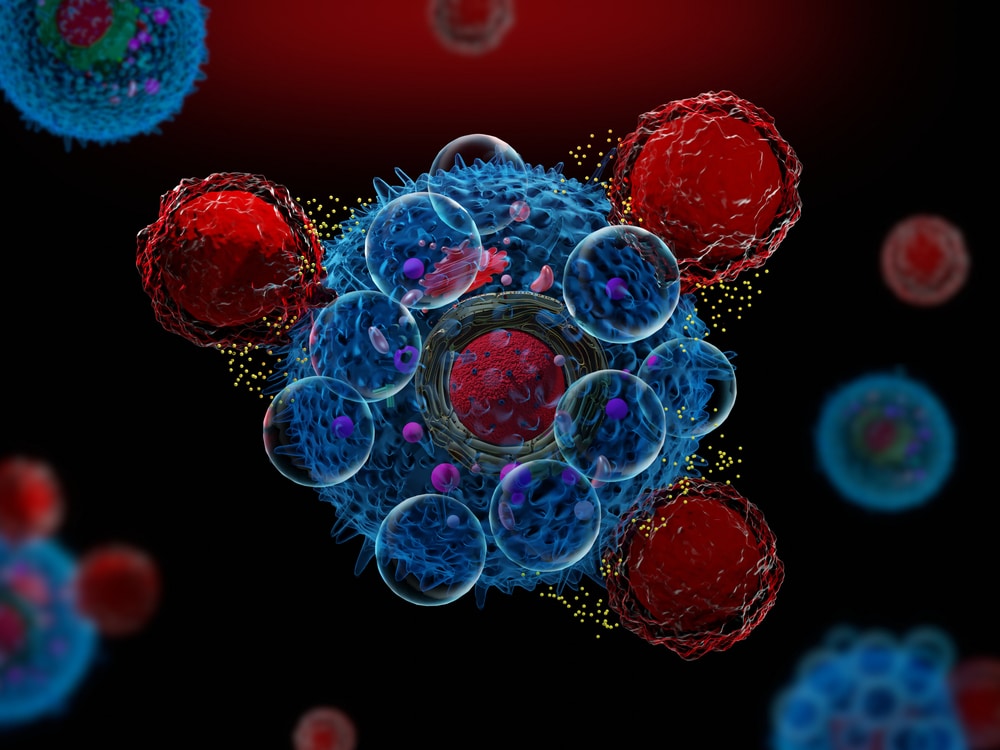Metastatic prostate cancer is a leading cause of cancer death in men worldwide.
Interleukin (IL)-30, a cytokine that may perform immunomodulatory functions, promotes prostate cancer onset and development, but whether it can be a suitable therapeutic target remains to be investigated.
In a new study published in the Journal of Hematology & Oncology, researchers at the University of Chieti-Pescara, Italy, have shown the relationship between IL30 and canonical PC driver genes, and explored the anti-tumor potential of CRISPR/Cas9-mediated deletion of IL30.
The study
PC cell production of, and response to, IL30 was tested by flow cytometry, immunoelectron microscopy, invasion and migration assays and PCR arrays. Syngeneic and xenograft models were used to investigate the effects of IL30, and its deletion by CRISPR/Cas9 genome editing, on tumor growth.
Bioinformatics of transcriptional data and immunopathology of prostate cancer samples were used to assess the translational value of the experimental findings.
Results
Human membrane-bound IL30 promoted prostate cancer cell proliferation, invasion and migration in association with STAT1/STAT3 phosphorylation, similarly to its murine, but secreted, counterpart.
Both human and murine IL30 regulated prostate cancer driver and immunity genes and shared the upregulation of oncogenes, BCL2 and NFKB1, immunoregulatory mediators, IL1A, TNF, TLR4, PTGS2, PD-L1, STAT3, and chemokine receptors, CCR2, CCR4, CXCR5.
In human prostate cancer cells, IL30 improved the release of IGF1 and CXCL5, which mediated, via autocrine loops, its potent proliferative effect.
The researchers said deletion of IL30 dramatically downregulated BCL2, NFKB1, STAT3, IGF1 and CXCL5, whereas tumor suppressors, primarily SOCS3, were upregulated.
Prostate cancer models demonstrated IL30’s ability to boost cancer proliferation, vascularization and myeloid-derived cell infiltration, which were hindered, along with tumor growth and metastasis, by IL30 deletion, with improved host survival.
The researchers said the efficacy of CRISPR/Cas9-mediated targeting of IL30 in curbing prostate cancer progression paves the way for its clinical use.





